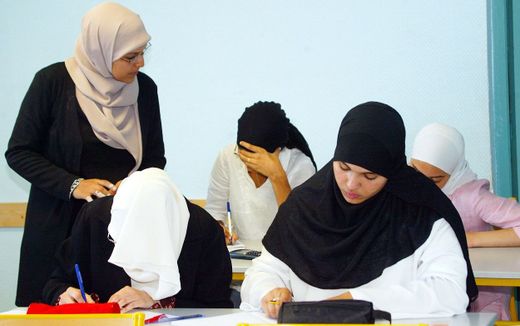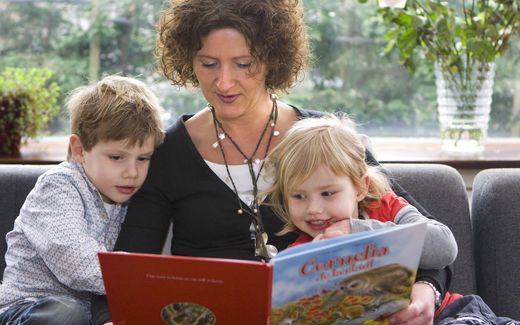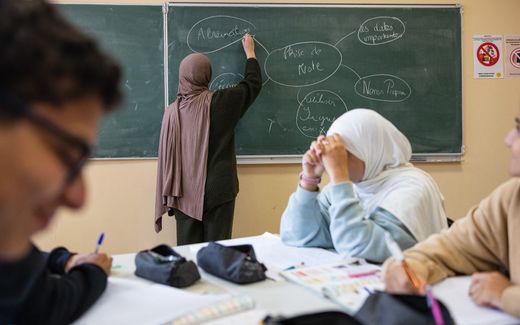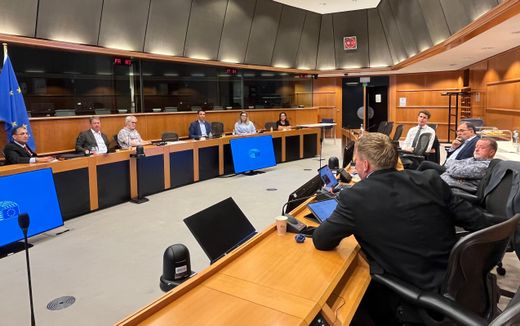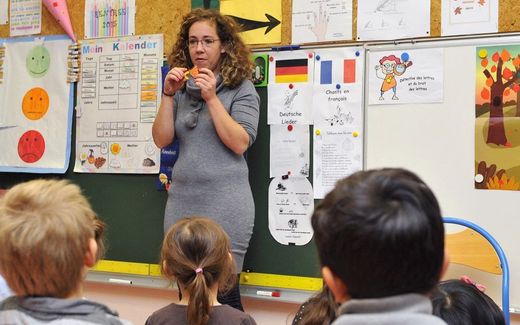The times are “dark”, but Christian schools in Europe are growing
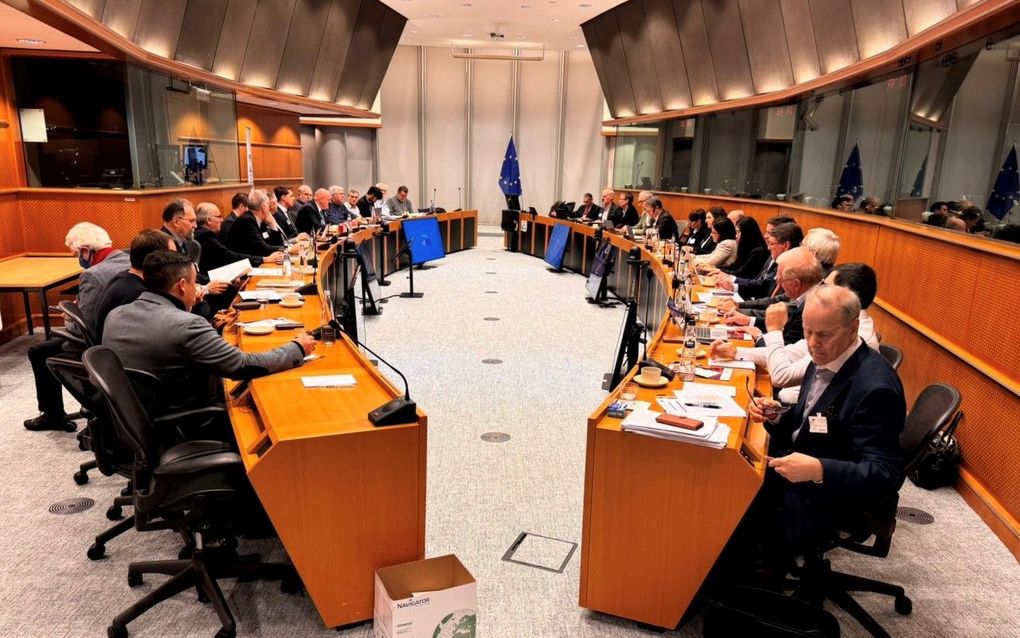
The Brussels Considerations on Tuesday in the European Parliament in Brussels. Photo CNE, Joe-Lize Kruijsse-Brugge
European Union
Hurdles and obstacles are there enough for Christian schools. But in many countries, the need is growing.
It is the first time in many years that the number of Christian schools is rising. That was concluded at the Brussels Considerations, a conference where Christian school leaders from 13 EU member states met this week.
The conference started with an inventarisation of experiences in several countries: For the ten years the Brussels Considerations have been organised, there has not been any news about new Christian schools being founded, says Pieter Moens, chair of the Association for Reformed Education (VGS) in the Netherlands. This year, there are plans to establish new schools in Sweden, the United Kingdom, and Spain.
This is remarkable, especially in Sweden, because the political climate there is hostile to religious schools, one of the participants said during the meeting. The government does not allow confessional elements in the teachings. If a school wants to organise a Christian worship meeting, it is forbidden to oblige students to attend. Instead, it has to set up an alternative for those who would rather not be involved in religious elements.
At the same time, there is a need for Christian education in Sweden. Despite the “aggressive secularisation” in the country, two potential schools have recently sent out an application to be approved as an educational institute.
Also, in Spain, the number of Christian schools is growing. Within the coming years, two to three new schools will open. Christians in Spain experience God’s help in their endeavours, they say at the Brussels Considerations. “In November, we met some nuns from a large convent. They came to us and told us they had a large, empty building. They asked us whether we could put a school into it.”
Yet, this is only the beginning, a Spanish participant of the Brussels Considerations assures. “Our vision is to start 20 new Christian schools.”
Christian schools in other countries also wish to expand their premises as well, as they experience that more and more students want to enrol in their programmes.
In Switzerland, the number of Christian schools has not grown in years. Currently, there are about 20 Evangelical schools in the country. Circumstances are only sometimes favourable to these educational places, as the schools need help finding sufficient financial resources, enough teachers and housing. Yet, for the first time in years, the Initiative für Christliche Bildung (Initiative for Christian Education) received two groups that wish to start new schools. “After years of silence, more and more people ask for Christian education.”
In Albania, Christian education is relatively new. Yet, the only Christian school group in the country had to turn away 80 students last year because the educational institutes needed the capacity to admit all of them.
Christians in Albania experience that God is working in the country and, therefore, feel that it is time to expand the school system. However, in practice, this is challenging to do. As the Albanian government does not provide them with any support –even though Christian schools may organise activities without being limited– Christian schools struggle with financial problems. “We have the land, the structure and the design to start a new school, but we lack the money.”
Also, in Belgium, there are more than enough students to fill the Christian schools in the country, a participant from that country says at the Brussels Considerations. However, the schools struggle to find enough “Christian teachers who share the school’s vision.”
Austria struggles with the same problem. The schools are thriving, and every year, more students apply to be admitted than the school’s capacity allows. The problem for Christian schools in Austria lies mainly in finding enough Christian teachers. Therefore, some schools have had to hire non-Christian teachers, which sometimes leads to struggles.
According to several participants, this development comes in reaction to the political development all over Europe that forces public schools to teach about gender and sexuality liberally. Concerned parents start looking for schools that do not incorporate this LGBT content in their curriculum.
In some countries, Christian education does not consist of established Christian schools. Yet, this does not mean that students do not receive any Christian education at all, some point out at the Brussels Considerations. Therefore, some European organisations, such as the Czech Republic, focus on equipping Christian teachers in public schools. “Part of the ministry is to encourage Christian educators in secular schools to shine the light of Jesus in a time of this.”
Related Articles


